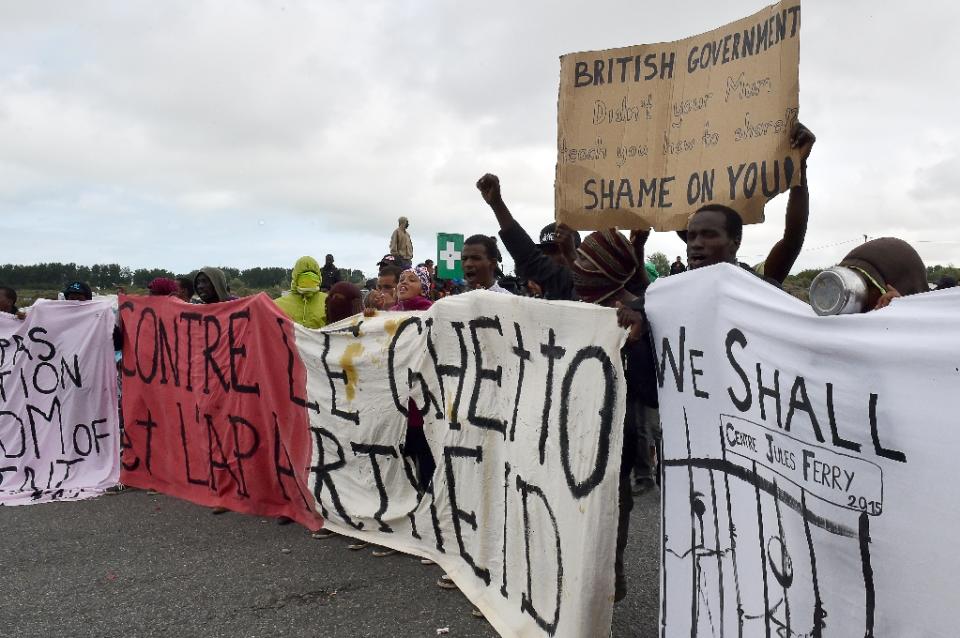
It's been nearly 40 years since Soko Phay fled Cambodia with her parents to France where she was welcomed with "an extraordinary generosity," but now she sees a country that "has changed, and not for the better".
For many years, France topped the list of destinations for asylum-seekers in Europe, but by last year, it had dropped to fourth -- behind Germany, Sweden and Italy.
With 64,130 applications in 2014 it even saw a slight drop, despite the huge 44-percent increase in refugee arrivals across the continent.
This year hundreds of thousands more have headed to Europe.
Like many of its neighbours, France lacks the resources to cope with newcomers, with only 30,000 hostel beds for asylum-seekers and ever-longer waiting times for cases to be decided.
Soko Phay contrasts the difficult stories of Syrian exiles with her own arrival in Paris in 1976, aged seven, after her family fled the horrors of the "Killing Fields".
"Maybe I just had a child's point of view, but I have wonderful memories," she said, recalling holidays with French families and caring teachers.
Now she views with sadness "the nationalist turn" in her beloved adopted home.
Part of the reason may be context. France's economy is sluggish, with unemployment over 10 percent and widespread disillusionment with its leaders.
That has been fertile ground for the far-right National Front (FN), which blames much of the country's woes on foreigners and openly opposes all immigration -- "both legal and clandestine," as leader Marine Le Pen reiterated last weekend.
The FN's views are rubbing off on voters -- a 2013 poll found three-quarters of French people thought there were too many foreigners, up from 46 percent in 2009, and the party is soaring in the polls, coming first in European elections last year.
Its political rivals feel the need to match its hardline language. Opposition leader and former president Nicolas Sarkozy recently compared the influx of migrants to "a burst water-pipe".
- Historical refuge -
This is not how the French Republic was first conceived. The vow to provide "asylum to foreigners banished from their countries in the cause of liberty" was written into the 1793 constitution.
For a decade up to 1985, France welcomed 110,000 "boat people" escaping communist regimes in Cambodia and Vietnam. It took some 15,000 Chileans after the 1973 coup by General Augusto Pinochet.
But since 2011 only 7,000 Syrians have been granted refugee status in France, out of four million people who have fled the country.
"Welcoming refugees is in our DNA," said Pierre Henry, director general of Terre d'Asile, an NGO.
"But today, we are in the middle ranks of Europeans on the issue of asylum, and we are no longer a powerful voice on the subject."
Others argue that Sweden and Germany attract more migrants for different reasons than the warmth of their welcome.
The majority of refugees are currently Syrians, Iraqis, Eritreans and Somalis -- groups that have stronger ties to Britain, Germany and Sweden. France's weaker economy and relative lack of English speakers are also a put-off.
The idea of France as a haven for all refugees is a bit of a myth, says demographer Francois Heran. Historically, its newcomers have tended to be workers and their families from former colonies in Africa.
The situation today is similar to that during the Balkan civil wars of the early 1990s, when most refugees headed for Germany rather than France. Berlin says it is expecting 800,000 asylum applications this year.
With around 200,000 people moving to France every year, "the government feels it is already doing a lot and doesn't mobilise itself when there's an emergency," said Heran.
Interior Minister Bernard Cazeneuve insisted this week that the Socialist government was serious about the issue, having decided in June to create 10,000 new beds for asylum-seekers and push for a new law to speed up the application process.
Rights groups say it is not nearly enough; right-wingers say it is far too much and will attract more migrants.
The whole debate has become irrational, says Pascal Brice, the head of OFPRA, the agency that rules on asylum applications.
"For some, we are too attractive a country, for others we are no longer a welcoming country. It's excessive." afp








































